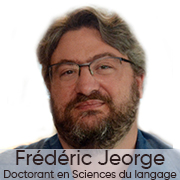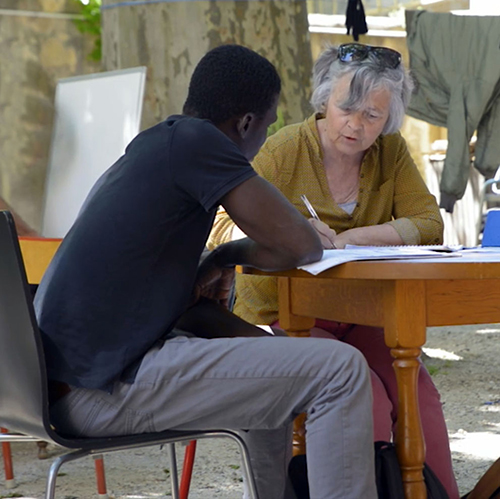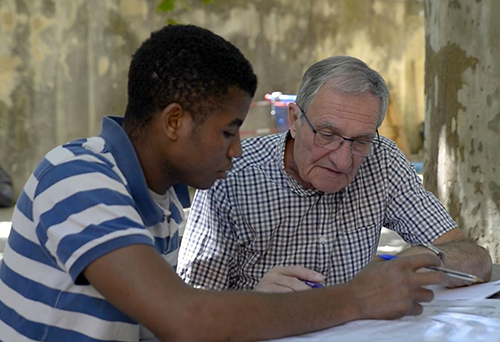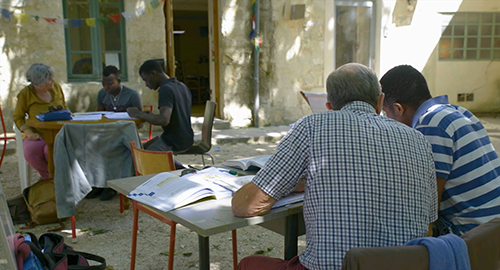[Portrait] Frédéric Jeorge, PhD student in Language Sciences
What is your research about?
In addition to teaching at universities and in associations, I am working on the way in which the level of French of young migrants from sub-Saharan Africa is assessed by official testing systems. Their educational background (or often its absence), their cultural background, their use of the language do not make them the audience for which the generic tests were designed, which can bias the results and create a certain inequity. I want to measure this phenomenon and suggest ways of remedying it.

What are your current scientific activities?
Still at the beginning of my thesis, I am currently focusing on doctoral training and participation in various events such as the MidisciencesI am also involved in a number of other activities, such as teacher-researcher meetings, the ICTT study days and the organisation of doctoral courses. Moreover, the preparation of some of my courses opens up new avenues and avenues of reflection, but it is important not to get too far ahead of myself!
Why did you choose to work in academic research?
It came late and a bit by chance, after several careers in different countries and fields (but often with a link to training), I chose to go back to school to validate these achievements and got caught up in the academic game. Transposing my associative activity into formal research will, I hope, allow me to give more visibility and concrete means of action to this subject which is close to my heart and has direct consequences on the lives of many young people Moreover, teaching in the same field facilitates the didactic transposition and the awareness of the next generation of trainers.
What advice would you give to students who want to do research?
Remain as open and flexible as possible. Having an idea in advance is a necessary starting point, but one should not get stuck on it and remain ready to evolve it if necessary, as seems to be the case for many PhD students. I would also advise those who want to get started to attend as many conferences, seminars and defences as possible as early as possible, as these are indispensable examples and sources of inspiration.
What object or image from your business best illustrates you?
A French course in the Rosmerta AssociationThis is the place where unaccompanied minors are housed, close to the university. Rather than leaving them on the street, unaccompanied minors are taken in while their situation is regularised and they are given courses. They generally make great and rapid progress... the difficulty is then to have their level validated by tests that are not adapted for them.



Photos from the film of the Rosmerta association, in Avignon
film directed by Karin Music
MidiSciences
>> Open to staff and students of the university
>> MidiSciences 2022 Programme
The laboratory
>> Read more
The portraits
Mis à jour le 22 December 2022